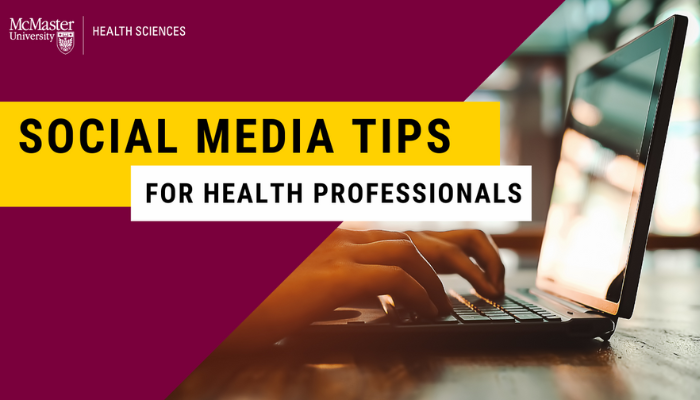Social media tips for health care professionals

Scrolling through Twitter and Instagram isn’t just for cute pet pictures, trending dance moves, and the latest culinary creations.
Social media has become an important tool to help enhance medical education and increase health literacy.
Whether it’s raising public awareness, combating misinformation or sharing accurate health messaging with a wide audience, you don’t have to be a social media expert to get started.
Paul O’Byrne, dean and vice-president of the Faculty of Health Sciences at McMaster University, spoke with Teresa Chan, associate professor of medicine and associate dean of continuing professional development, about good practices and potential pitfalls for health care professionals when entering the space of social media.
Chan says health care professionals should first become familiar with the nuances of each platform. “On LinkedIn, know that you can post longer materials,” said Chan. “You can have more than just a few lines, but only those first couple of lines can be seen above the fold.” Chan emphasized the importance of making those first few lines “catchy” so your audience will be enticed to click and learn more.
Incorporating a variety of engagement tools like polls, threads and chats can help expand your audience. “Each time you engage in a different way, I think you reach a different group of people. Now, if you’re a scientist or a clinician who is engaged in research and you want to reach your research colleagues, it’s useful to still use graphics and other fun ways to engage your audience so that they’re interested in the work that you’re doing,” said Chan.
Health care professionals must respect patient confidentiality and consider jurisdictional laws and policies when creating content for social media. Chan says if a post references a patient’s case and includes key pieces of information like date, time and location, it may be enough to trace back to the patient.
“In Canada, luckily, gunshot wounds are not that popular as a pathology within the emergency department where I work,” Chan said. “That means, if I talk about someone being shot on a specific date or time, people could probably figure it out the next day on the news.”
For more tips on how to best utilize social media as a health care professional, visit the Faculty of Health Science’s YouTube channel.
Dept. HEI - Main, FHS, Other
